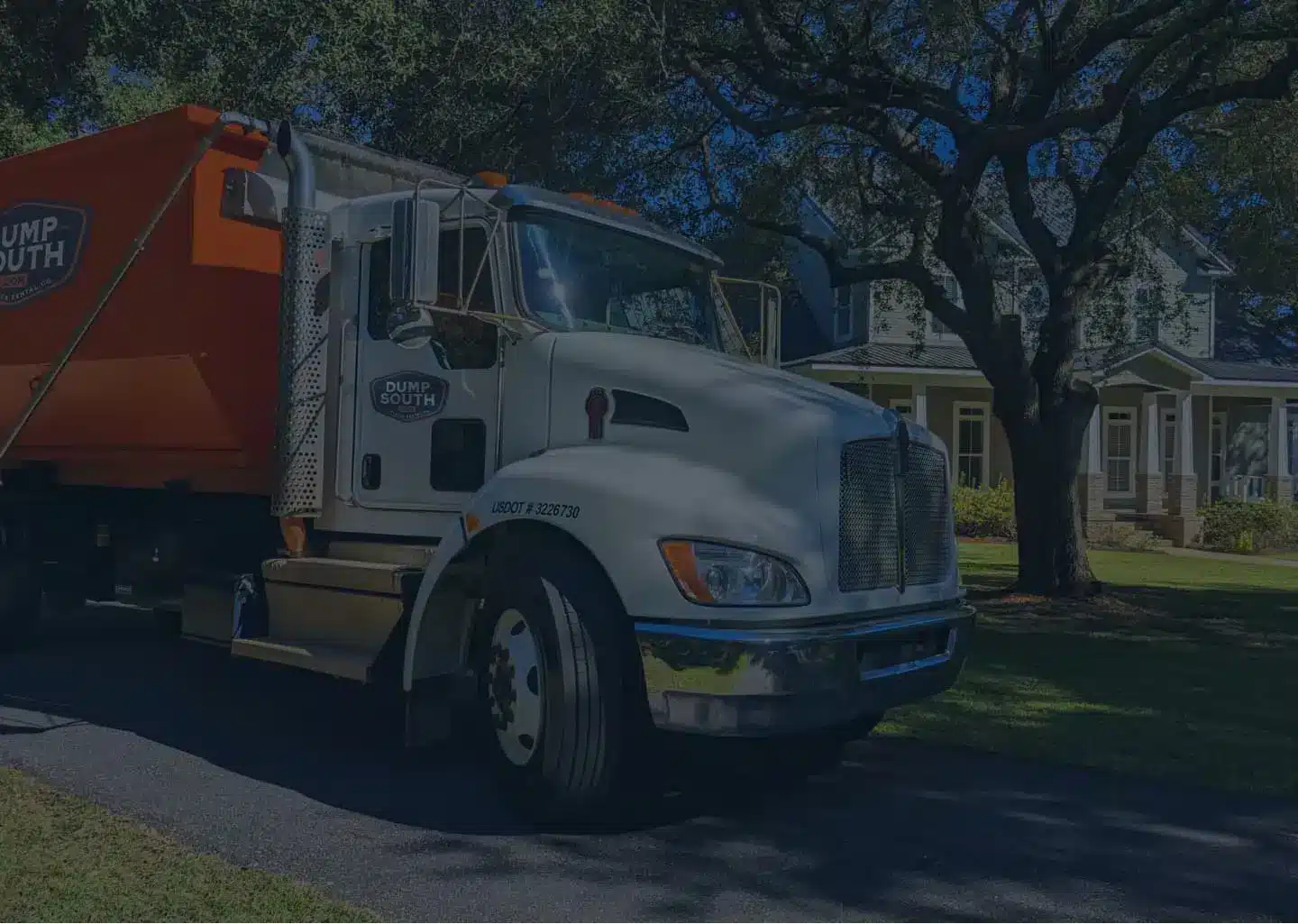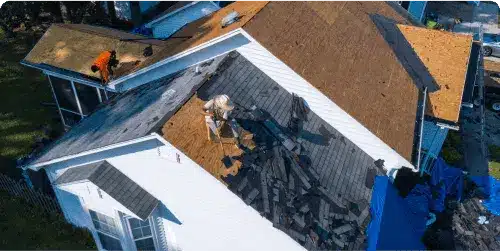Planning a renovation, spring cleaning, or a major cleanout? Navigating the world of waste disposal can feel overwhelming. But don't worry! This comprehensive guide will walk you through everything you need to know about dumpster rental services, empowering you to make informed decisions and efficiently manage your waste disposal needs.

What is Dumpster Rental?
Dumpster rental involves renting a large, metal container – a dumpster – for temporary waste disposal. These containers come in various sizes, from compact 10-yard options ideal for smaller projects to substantial 40-yard units suitable for large-scale construction or demolition jobs. Understanding the different types of dumpsters, their capacity, and appropriate uses is crucial for choosing the right fit for your specific waste management needs. Whether you're tackling a household cleanout, managing construction debris, or dealing with commercial waste, selecting the correct dumpster size is a key step in efficient waste removal and minimizing project disruptions. This often involves considering factors like the project scope, expected waste volume, and local refuse collection guidelines.
Why Choose a Waste Management Service?
Partnering with a reputable waste management service offers several key advantages. Professional services streamline waste disposal, ensuring compliance with landfill regulations and minimizing environmental impact. Beyond the convenience, using a professional service reduces the risk of injury associated with manual waste handling. It also alleviates the burden of transporting waste yourself, which often involves navigating permits, adhering to weight restrictions, and finding suitable disposal sites. Choosing a reliable service provider simplifies the process, saving you time, effort, and potential headaches. Reliable waste disposal providers also commonly offer various waste sorting techniques and recycling options, making the process more environmentally friendly.
How to Rent a Dumpster Near You
Finding and renting a dumpster near you is a straightforward process. Begin by searching online for "dumpster rental near me" or "waste management dumpster" to find local providers. Compare prices, sizes, and services offered before making your decision. Many companies offer online booking, allowing you to reserve a dumpster quickly and efficiently. Consider factors like delivery and pickup schedules, permitted waste types, and any additional fees associated with weight limits or extra disposal needs. Reading customer reviews is also essential, as this allows you to gauge the reliability and customer service of potential providers.
Steps to Rent a Dumpster
Determine your dumpster size needs: Assess the volume of waste you anticipate generating. Get quotes from multiple providers: Compare pricing and services to find the best fit for your budget. Schedule delivery and pickup: Coordinate these details with the provider to avoid disruptions. Prepare the site: Ensure there's adequate space for dumpster placement, respecting local regulations and access requirements. Fill the dumpster responsibly: Adhere to guidelines on accepted materials, which vary depending on the provider and location. Schedule pickup: Contact the provider to schedule the removal of the filled dumpster upon completion.
Pricing for Dumpster Rental Services
Dumpster rental prices vary based on several factors. The size of the dumpster is a major determinant, with larger containers commanding higher rental fees. Rental duration also plays a role; longer rentals typically incur higher costs. Your location, the type of waste you're disposing of, and any additional services (such as drop-off and pickup) can influence the overall price. Comparing quotes from multiple waste management services is advisable, as prices can fluctuate considerably. It’s helpful to check for any potential additional fees, such as those associated with exceeding weight limits. This will allow you to make an informed decision based on cost and value.
Typical Costs by Size and Type
Dumpster Size Typical Cost (per week) Best Suited For 10-yard $300-$500 Small home cleanouts, minor renovations 20-yard $400-$700 Medium-sized renovations, larger cleanouts 30-yard $600-$1000 Large-scale renovations, commercial projects 40-yard $800-$1500 Demolition projects, major constructionNote: Prices are approximate and may vary based on location Yard Waste Disposal Bin and provider.

Types of Waste You Can Dispose Of
Understanding what materials are accepted for disposal is crucial. Most dumpster rental services accept common household waste, construction debris (wood, concrete, etc.), and yard waste. However, hazardous waste (chemicals, paints, asbestos) is typically prohibited and requires specialized disposal methods. Familiarize yourself with your chosen provider's guidelines to avoid additional fees or potential legal issues. Always properly sort your waste, separating recyclables to maximize resource recovery and environmental sustainability. Improper disposal methods not only create landfill issues but also carry potential fines for non-compliance.
Sustainable Waste Management Practices
Adopting environmentally responsible waste management habits is essential. Recycling, composting, and proper waste sorting are key elements. Recycling programs vary by location, so it's important to research local curbside garbage pickup options and familiarize yourself with recycling guidelines. Composting organic waste (food scraps, yard waste) reduces landfill waste and creates valuable soil amendments. By carefully sorting your waste materials before discarding them, you can enhance efficiency and improve sustainability efforts significantly. This is important for responsible waste disposal and helps promote a greener future.
Tips for Responsible Disposal
- Reduce waste: Minimize packaging, reuse materials, and repurpose items when possible. Recycle: Sort and separate recyclables according to local guidelines. Compost: Compost organic materials to create nutrient-rich soil. Dispose of hazardous waste properly: Contact local authorities or specialized waste disposal companies for hazardous waste handling.
Frequently Asked Questions (FAQs)
Q: What size dumpster do I need for my project? A: This depends on the volume of waste you anticipate. Consider the size of your project and consult with your waste management provider for guidance.
Q: How long can I keep a rented dumpster? A: The rental period varies by provider, typically ranging from a few days to several weeks.
Q: Are there any materials I cannot dispose of in a dumpster? A: Yes, hazardous materials are usually prohibited. Check with your provider for a complete list of restricted items.
Q: How does dumpster rental pricing work? A: Pricing is generally determined by dumpster size, rental duration, and location. Additional fees may apply for exceeding weight limits.
Q: What happens if I exceed the weight limit of the dumpster? A: You may be charged an overweight fee, sometimes significantly impacting the final cost. It is best to accurately estimate your waste volume.
Conclusion
Renting a dumpster is a practical and efficient way to manage waste for various projects. By understanding the process, selecting the right size, and following responsible waste management practices, you can ensure a smooth and environmentally conscious disposal experience. Contact a reputable waste management service provider today to discuss your waste management needs. Let's work together towards cleaner communities and a more sustainable future.